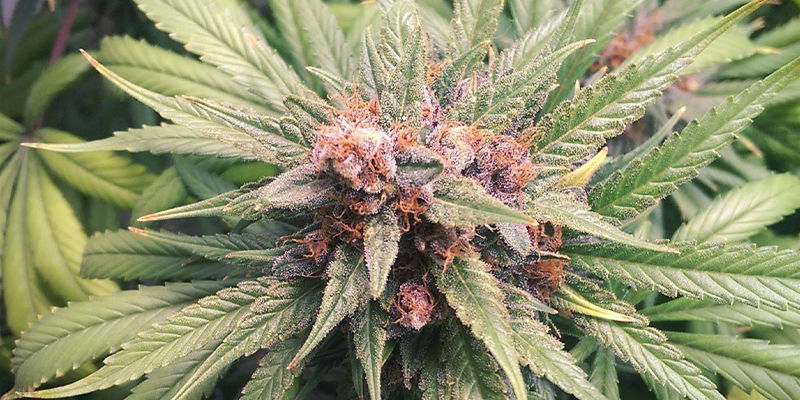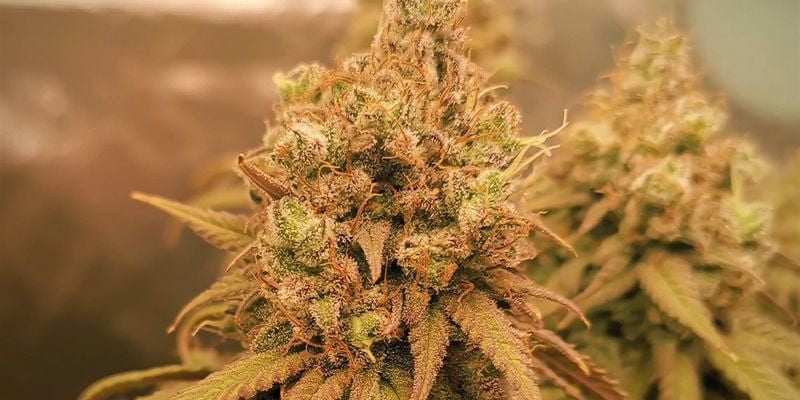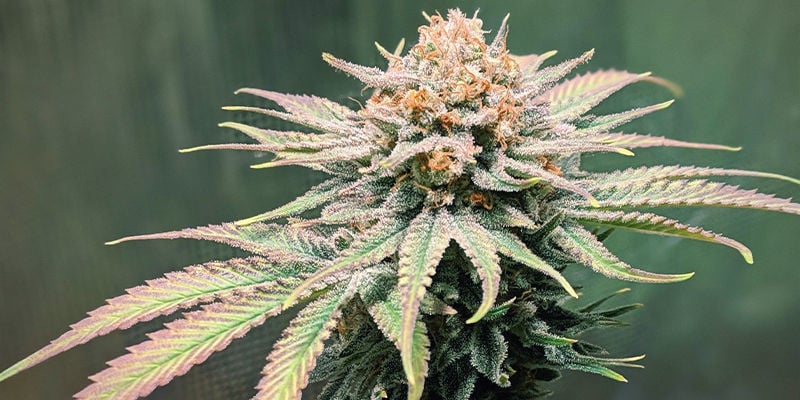
The Pros (And Cons) Of Using Cannabis For Studying Or Training
Cannabis use has long been assumed to sustain negative effects on memory, learning and mental performance. However, recent findings prove that this is not always the case. Many individuals actually use weed to help them study, train for athletic endeavors and even work.
Apart from stoned driving, there are few other issues quite as controversial in the world of cannabis as how it affects mental performance. Psychoactive Cannabis clearly influences the brain, but to what extent? The qualities that make cannabis an effective treatment for serious conditions also makes it worrying to some uninformed consumers. Regarding studying and physical training, there are plenty of anecdotal accounts of how weed may improve your efficiency, but answers remain unclear.
Despite the controversy, the question still remains. Does marijuana help or hinder studying and cognitive functioning? There are several ways to look at this issue. And there are a couple of guidelines, despite the lack of definitive research available.
As a general rule, anyone with a developing brain should not use cannabis. Children and teenagers should abstain from using cannabis. Teens should be warned about the long-term impact of ingesting psychoactive cannabinoids before reaching maturity, as it may disrupt brain development.
Research conducted on teen cannabis use has drawn correlations between high-achieving individuals who avoid cannabis more than their “less educated” counterparts. Believe it or not, comprehensive legalization measures tend to reduce teen use since the substance is less stigmatised and more openly discussed.
Beyond this, the jury is definitely out.
Cannabis may negatively impact learning, even in adults. That said, there is no evidence to suggest that cannabis impacts long-term memory or the ability to process and retain new information. Further, in certain circumstances, cannabis can actually incite creativity, while boosting productivity and performance! Below, we take an in-depth look into the pros and cons of using cannabis for studying and training.
ACADEMIC TESTS AND POT

Whether cannabis negatively impacts test scores has been studied for at least half a century. Not surprisingly, the evidence is mixed. Keep in mind too that not all cannabis dissenters employ real facts in their “studies” and arguments. However, in general, most people suggest it is probably not a good idea to smoke any psychoactive substance right before taking an exam. Cognitive impairment varies widely from individual to individual. Short term impairment from smoking weed is widely observed and may cause acute trouble when trying to remember an equation or come up with a literary device.
However, cannabis’ long-term impact on overall mental functioning is another story entirely. This includes academic, professional and highly strenuous mental and physical performance. In these areas, there is conclusive evidence that cannabis can actually improve productivity and focus. These results dispute the supposed stereotype of the mentally slack stoner or couch potato.
There are further circumstances to consider about this highly contested topic. Medical cannabis could potentially help people learn in traditional academic settings. Remove pain and anxiety from the equation and the positive results begin to crop up everywhere.
In reality, there is not enough scientific evidence yet to understand how THC, in particular, affects learning or performance of any kind. Due to political and social onus, cannabis research is often conducted on non-human subjects and therefore cannot be asserted with 100% assurance. For instance, the study of cannabinoids on disabled individuals is an area which could highly benefit from increased study, but as of yet still lacks sufficient exploration.
SHOULD I...
All of the empirical and peer-reviewed evidence aside, remember this fact - cannabis use is first and foremost a personal choice. Use it wisely and responsibly. While the guidelines we’ve listed below are far from being definitive advice, each can be viewed as a launch point for making your own decisions.
USE WEED BEFORE STUDYING?
This is a highly subjective question that takes into consideration your tolerance and reasons for consuming cannabis. There are several ways to observe this query. Certain strains of cannabis can absolutely fog the brain and encourage sedation and couch-lock. This is not an ideal posture for studying.
Conversely, there are certain areas of study which may benefit from smoking a bowl beforehand. Philosophy majors might well find that cannabis is a valuable aid to contemplate the existential. Math majors, maybe not. Again, it all depends on the individual! In doubt? Abstain.
USE WEED AFTER STUDYING?
Then there is the question of using weed after studying. Thankfully, smoking a joint after poring over documents will not make you “forget” what you have learned. Indeed, it could very well relax you! In many cases, cannabis even helps you synthesise information with greater efficacy.
USE WEED RIGHT BEFORE A TEST?
Straight answer? Probably not.
WHAT ABOUT MICRODOSING?
Microdosing is gathering speed as the hottest trend in cannabis right now. In actuality, this is how many cannabis patients treat themselves, particularly if they orally ingest the drug. Cannabis is easier to administer this way and helps to mitigate any potentially negative effects. Microdosing weed is still largely based upon conjecture and has not received sufficient study on the able-bodied. However, the future holds a lot of promise in developing strains of cannabis to increase mental stimulation, without putting you to bed or sending your brain into the psychedelic stratosphere.
PHYSICAL TESTS AND WEED

Moving into an equally contested field, the impact of cannabinoids on physical performance is a commonly debated topic. More and more athletes are using cannabinoids, including THC, to train and recover. Long distance runners, for example find that cannabis helps them focus, extends their endurance and helps them overcome pain.
Extreme sports enthusiasts like snowboarders and rock climbers cite the increase in confidence induced by cannabis when tackling a major athletic feat. American Football players are making waves over cannabis use as an ongoing part of therapy and pain management.
However, cannabis is currently one of the drugs that is routinely included in international collegiate and professional dope tests. This includes during training as well as before competitions. If it is indeed true that cannabis increases endurance and performance, this may well impact other discussions. After all, cannabinoids are present in the body long after the high wears off. That is why drug tests find evidence of cannabis days or even weeks after inhaling your last toke.
CANNABIS CAN INCREASE PRODUCTIVITY AND ENERGY

On the opposite side of the ledger, there are those who swear by weed as a way to increase motivation, productivity, and learning. Most individuals who use it while working say it allows them to eliminate peripheral stress and focus on the task at hand.
Others say it helps them tap into multiple streams of thought simultaneously. Clearly again, this is a subjective response. With that said, each account helps to refute the idea that using cannabis is a one-way ticket to poverty and failure. It also challenges stereotypes on how cannabis impacts brain and physical performance. Cannabinoids naturally bind to receptors in the endocannabinoid system which can stimulate creativity and in some cases, help individuals achieve peak physical performance.
BEST STRAINS TO SMOKE WHILE STUDYING OR WORKING
In general, sativa strains trigger a more energetic and productive response than indicas. While there are many varieties to choose from, experimentation is all part of the fun. Here are a few suggestions to get you inspired.
DURBAN POISON
South African Durban Poison is a sativa with a deliciously unique taste. Its licorice overtones contribute to elevated mood and increased energy, yet its THC content lands around 8-9%. This is just the right concentration for a cannabis-infused study session that won’t get you too blasted.
Durban Poison grows quite tall, making it ideal for outdoor and greenhouse operations. The flowering period is also fast for a sativa – only 8-9 weeks! The resulting crop is mold resistant, producing large, unadulterated yields.
SUPER SILVER HAZE
This strain is one of the world’s most popular. A hybrid mix of Haze, Skunk and Northern Lights combine to create a powerful, cerebral high. Like most sativas, Super Silver Haze is a bit of a skyscraper. That said, it can be grown indoors too. When inside, plants average a yield of between 450-550 grams per square meter. Outdoors, yields can increase dramatically depending on growing limitations.
JACK HERER
Named in tribute to cannabis activist Jack Herer, this super sativa hybrid has a 20% THC potency and strong mental outcomes. As the child of a Haze and Red Skunk, this strain produces abounding, aesthetically pleasing buds. Flowers look like giant green popcorn sprinkled with orange pistils and coated with a fine layer of powdered sugar. Buds are also very resinous, creating a long-lasting, pleasant high that is beneficial for medical users. Jack Herer has won or placed in 11 Cannabis Cups for a good reason.
-
 3 min
26 June 2023
Using Magic Mushrooms For Studying: Does It Help?
When exam period approaches, it can be tempting to turn to drugs to assist us in our studies. But how can you use them in a way that actually helps? In this article, we delve into the topic of...
3 min
26 June 2023
Using Magic Mushrooms For Studying: Does It Help?
When exam period approaches, it can be tempting to turn to drugs to assist us in our studies. But how can you use them in a way that actually helps? In this article, we delve into the topic of...
-
 3 min
24 May 2022
Top 10 Cannabis Strains That Boost Creativity
Never fear that dreaded creative block, as these strains will have you busting through barriers in imagination you never knew could be overcome.
3 min
24 May 2022
Top 10 Cannabis Strains That Boost Creativity
Never fear that dreaded creative block, as these strains will have you busting through barriers in imagination you never knew could be overcome.
-
 2 min
3 May 2017
7 Cannabis Strains Ideal For Boosting Motivation And...
Sativa strains of cannabis contain a high content of cannabinoids that can actually give you more energy and clear the fog from your eyes. Whether you just need a pick-me-up or you suffer with...
2 min
3 May 2017
7 Cannabis Strains Ideal For Boosting Motivation And...
Sativa strains of cannabis contain a high content of cannabinoids that can actually give you more energy and clear the fog from your eyes. Whether you just need a pick-me-up or you suffer with...





 United States
United States














